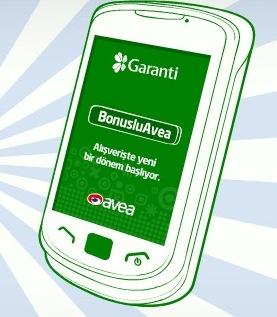Turkish Bank and Telco Launch Flex-SIM Project

Turkey’s Garanti Bank and mobile operator Avea have commercially launched their planned mobile-payment service, using SIM overlay chips with flexible antennas to enable customers to tap their phones to pay with MasterCard PayPass.
The parties say the devices will enable users to tap their phones to pay at any of 35,000 merchants locations in Turkey that accept PayPass as well as PayPass locations Worldwide.
Although the bank and telco announced the rollout last May and targeted July for a commercial launch date, it is just being launched now. The parties hope to sell at least 100,000 of the devices, supplied by France-based Gemalto.
The devices, which Gemalto calls N-Flex, require Avea subscribers who are Garanti customers to buy new SIM cards at the mobile operator’s shops, which are preloaded with PayPass. This SIM gets a contactless interface via the thin SIM overlay, which makes contact with the SIM. This thin overlay, which is placed on top of the SIM in the SIM slot, is also connected to a flexible antenna and NFC chip, which sits on top of the phone battery. MasterCard announced the project today at the Cartes conference and expo in Paris.
Mehmet Sezgin, head of payment systems for Garanti, one of Turkey’s largest banks, characterized N-Flex as a bridge product until full NFC phones arrive. But lacking NFC phones, m-commerce players will look to this and other contactless-mobile technologies.
Garanti conducted a trial with full NFC phones in 2008, and has been eager to launch a commercial rollout of mobile payment, but has lacked suitable NFC phones. The bank has been aggressive with contactless technology, launching the first rollout of contactless bank-payment cards in Europe in mid-2006. It has also issued passive contactless stickers. All told, it has issued more than 1 million contactless PayPass card and stickers.
"N-Flex is a clear message to the handset producers, such Nokia, LG, Samsung, Blackberry–if they don’t equip their handsets with NFC, then consumers will turn elsewhere to find solutions to make their lives easier," he told NFC Times.
The launch will require customers to go to the telcos’ shops to get new SIM cards, which will be preloaded with a PayPass prepaid and PayPass credit application, said Sezgin. Users can top-up value to the prepaid account over the air, he said.
Update: MasterCard has yet to certify the N-Flex devices for PayPass and granted a waiver for the project, a MasterCard executive told NFC Times. End update.
The project proves a bank can work with a mobile operator, Sezgin told NFC Times. Garanti and Avea, Turkey's No. 3 telco, are splitting the costs for the N-Flex devices and promotions to consumers. The telco is not charging Garanti to rent space on the SIMs, he added.
"That’s (SIM rental) short-term thinking, which kills the longer-term aspects about doing business," he said. "Rather than turning on one another and fighting over a price, they can actually combine their resources to find added functionality; added resources. They can download applications to the SIM and price those services accordingly."
For example, after the bank and telco have the platform in place, they might add P2P money transfers, transit applications and merchant-loyalty programs. Some of the services consumers might be willing to pay extra for, he said.
But Garanti, in fact, found it could not work with its first prospective telco partner on the project, Turkcell. The telco, the largest mobile operator in Turkey, simply wanted too much control, Sezgin said.
"Not only charging (us), but they wanted to control the gateway (keys) for the bank (application)," said Sezgin, who said Garanti rejected the conditions.
Garanti had worked with Turkcell on their 2008 NFC pilot. Now Turkcell, which plans its own NFC rollout in coming months, is reportedly partnering with Yapi Kredi bank.
Singaporean mobile operator StarHub, DBS Bank and transit fare-collection and payments company EZ-Link also recently announced their plan to launch a trial with N-Flex this month. Similar flex-antenna products linked to SIM cards and available from other vendors are being tested or even rolled out in China, Taiwan, Thailand and Russia.












